Current News
/ArcaMax
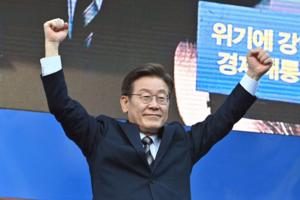
How a former factory worker rose to South Korea's presidency
SEONGNAM, South Korea — South Korean President-elect Lee Jae-myung has always described his politics as deeply personal, born of the "wretchedness" of his youth.
In his last presidential run three years ago, when his conservative opponent Yoon Suk Yeol, a former prosecutor, appealed to the rule of law, Lee told a story from his childhood: ...Read more
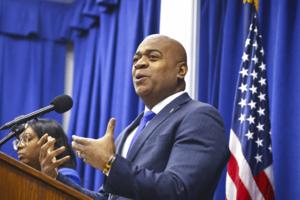
Newark mayor Ras Baraka sues US Attorney Habba over arrest at ICE jail
Newark mayor Ras Baraka Tuesday sued U.S. Attorney Alina Habba for wrongful arrest and defamation over his detention last month during a protest outside an immigration jail in the New Jersey city.
Baraka claims Habba improperly ordered his arrest and prosecution for allegedly trespassing at Delaney Hall, a detention center near Newark Liberty ...Read more

Immigration authorities detaining wife, children of suspect in Boulder fire attack
Federal immigration authorities are detaining the wife and five children of the suspect accused of burning a dozen people at a demonstration in Boulder that sought the release of Israeli hostages held in Gaza, U.S. Secretary of Homeland Security Kristi Noem said in a video posted on social media Tuesday.
Mohammed Sabry Soliman, 45, an immigrant...Read more
Michigan lawmaker seeks to bar antisemitism under state's anti-discrimination law
LANSING, Mich. — A Jewish state lawmaker from Oakland County is seeking to amend the state's anti-discrimination law to bar antisemitism specifically and hopes to convene a statewide commission on how to combat targeted violence.
State Rep. Noah Arbit, D-West Bloomfield, said he planned to introduce the legislation Tuesday and also hopes, ...Read more
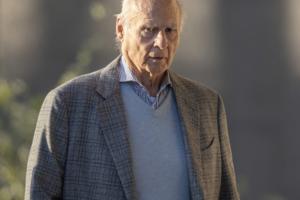
Tom Girardi – disgraced legal titan, former 'Real Housewives' husband – sentenced to 7 years in prison
LOS ANGELES — A judge sentenced disgraced legal titan Tom Girardi, once among the nation's most formidable trial attorneys, to seven years in prison Tuesday for stealing millions of dollars from clients.
U.S. District Court Judge Josephine Staton said in handing down the sentence that Girardi had used the settlements of catastrophically ...Read more

Sharks love this stretch of California's coast. A surfer almost found that out the hard way
LOS ANGELES — Sometimes the surfer catches a gnarly wave, and other times a shark catches the surfer.
Luckily for one California surfer, a shark swimming in San Mateo County waters over the weekend managed to get only a sample of his surfboard. Jens Heller was about 100 yards offshore at Montara State Beach sitting on his board Saturday when...Read more

South Korea elects Lee president, capping 6 months of chaos
SEOUL, South Korea —South Korea’s opposition candidate Lee Jae-myung vowed to improve people’s livelihoods as his main rival acknowledged defeat in a presidential election that was largely a popular verdict on ousted leader Yoon Suk Yeol’s botched attempt to revive martial law after decades of democratic rule.
With 90% of the ballots ...Read more
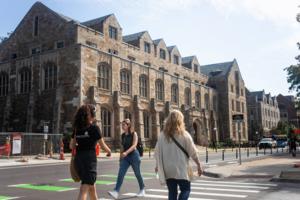
Chinese scholar at UM tried to smuggle biological pathogen into the US, feds say
DETROIT — Federal agents have arrested a University of Michigan scholar from China on charges she tried to smuggle a biological pathogen into the U.S. characterized as a potential agricultural terrorism weapon that can be used for targeting food crops.
The FBI counterintelligence case against UM scholar Yunqing Jian, 33, and her boyfriend, 34...Read more
Alum sues St. Paul college over animal cruelty concerns in lab experiments
MINNEAPOLIS — A Macalester College alum and medical doctor who has spent decades trying to end the use of animals in scientific research says the St. Paul school is lying when it claims to use the highest ethical standards for animal welfare in its labs.
Dr. Neal Barnard, a Maryland resident, filed a lawsuit Tuesday in Hennepin County ...Read more
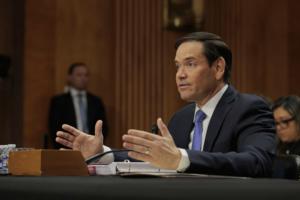
US is seeking release of man wrongly sent to El Salvador, but it's not Abrego Garcia, court records show
BALTIMORE — Court records show that U.S. Secretary of State Marco Rubio is personally intervening with El Salvador to facilitate the return of a Venezuelan man with the pseudonym “Cristian” — a case similar to one in which a judge has directed the Trump administration to bring Kilmar Abrego Garcia back to Maryland.
Rubio has “a ...Read more
Court orders Atlanta Police Foundation to release training center records
ATLANTA — A Fulton County Superior Court judge ruled that the Atlanta Police Foundation must make documents related to the city’s controversial public safety training center public under the Open Records Act.
The question of whether the powerful nonprofit is subject to Georgia’s Open Records laws was a flashpoint during debate over the 85...Read more

Ukraine says it attacked key Crimean bridge as traffic halted
Ukraine said it attacked the Crimean Bridge with explosives as Russia closed traffic on the route linking the annexed Black Sea peninsula with the Russian mainland.
Agents planted mines on underwater supports and detonated them on Tuesday, the Ukrainian Security Service, known as the SBU, said in a statement on Telegram. The SBU said the ...Read more

Dutch prime minister to resign, continue in caretaker role
Dutch Prime Minister Dick Schoof said his government would offer to resign and continue on in a caretaker role, setting the stage for a likely snap election.
Far-right Geert Wilders pulled his Freedom Party out of the Dutch government earlier Tuesday over the refusal of his three coalition partners to agree to his plans to curb migration. His ...Read more

Israel's Gaza push spurs Europe leaders to turn on Netanyahu
Some of Israel’s most loyal supporters in Europe are increasingly speaking out against the war in Gaza, with several nations, including Germany, considering trade sanctions and curbs on arms sales.
In recent weeks, the U.K., Netherlands and France have started mulling such moves against Israel to help end the 20-month conflict, which has ...Read more
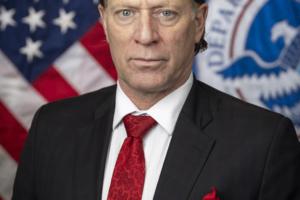
Trump's new FEMA director says he's unaware of hurricane season
President Donald Trump’s acting director of the Federal Emergency Management Agency FEMA told staff that he was unaware that the U.S. has a hurricane season, but officials claimed he was only joking.
David Richardson, who has no previous disaster management experience, told an all-hands meeting at the nation’s main disaster response agency ...Read more
New Orleans inmate still at large posts video asking Trump for help
One of two inmates still at large after a massive prison break in Louisiana last month appealed to President Donald Trump in a video he shared online amid his ongoing efforts to evade law enforcement.
In the viral clip, a man who identifies himself as Antoine Massey, an accused rapist and kidnapper, denies he busted out of the Orleans Justice ...Read more

Minnesota issues 'rare' air quality alert as Canadian wildfire smoke spreads
MINNEAPOLIS — Air quality alerts remain in effect for yet another day for the entire state of Minnesota with concentrations of wildfire smoke so thick the Minnesota Pollution Control Agency (MPCA) has issued a rare hazardous warning.
The MPCA uses a color-coded scale when issuing alerts, with purple and maroon signaling when the air is the ...Read more
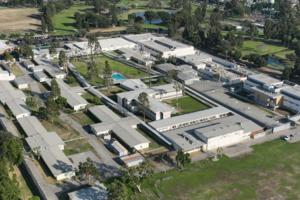
LA County to pay $2.7 million to teen assaulted in 'gladiator fight'
LOS ANGELES — Los Angeles County is poised to pay nearly $2.7 million to a teenager whose violent beating at a juvenile hall launched a sprawling criminal investigation into so-called "gladiator fights" inside the troubled facility.
Video of the December 2023 beating, captured on CCTV, showed Jose Rivas Barillas, then 16, being pummeled by ...Read more

Woman airlifted to hospital after Colorado moose attack
DENVER – A woman attacked Sunday by a moose in Steamboat Springs was airlifted to a Front Range hospital with serious injuries, according to Colorado Parks and Wildlife.
She was walking her two dogs at River Creek Park when she was attacked, agency officials said in a news release. Both dogs were leashed.
A man passing by on a paddleboard ...Read more
Florida mom killed son, 6, during attempted exorcism, sheriff says
A Florida mother is facing charges for the murder of her 6-year-old son after she allegedly told investigators that he died while she was attempted to “exorcise demons out of” his body.
The boy, identified by authorities as Ra’myl Pierre, was found dead inside his home in Fort Pierce on Friday, ABC News reported.
Deputies with the St. ...Read more
Popular Stories
- American doctors are moving to Canada to escape the Trump administration
- Two graduations, two empty chairs and the long shadow of a missing Indigenous teen
- Groups head to California Supreme Court, seeking to upend solar rules
- Trump says US won't agree to any uranium enrichment by Iran
- The iconic California avocado is in trouble, and this farmer is fighting to save it





